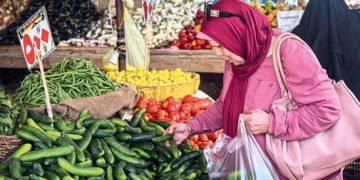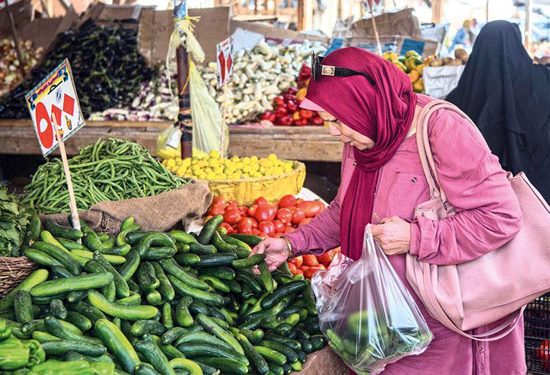Gulf News
The global food system is broken. Although it produces more than enough calories to feed everyone, up to 811 million people — more than 10% of the world’s population — go to bed hungry each night. Sadly, effective governance to ensure access to food for all is still lacking. A globally coordinated effort to address both the short- and long-term aspects of the hunger crisis must therefore be the top priority.
Today, all four dimensions of food security — availability, access, stability, and utilisation — are threatened by the combined negative effects of climate change, conflict, Covid-19, and cost. By disrupting global trade and pushing up food prices, these four “Cs” are creating a short-term challenge of increasing hunger. At the same time, the man-made climate crisis poses a medium to long-term threat.
Climate change has already started to affect the environment in which food can be produced. Exceptional droughts, heatwaves, and floods are undermining farming in regions as different as the Horn of Africa and the Midwest of the US. The Intergovernmental Panel on Climate Change’s recent Sixth Assessment Report leaves no doubt: The climate crisis will have increasingly damaging consequences for food systems around the world.
Distorting global trade
Russia-Ukraine crisis is aggravating this already dire situation. Armed conflicts have long been major causes of hunger, usually at the regional level. But the Ukraine war, involving two of the world’s largest producers of agricultural commodities, is distorting global trade.
As a result, the Food Price Index compiled by the Food and Agriculture Organisation of the UN hit an all-time high in March. Prices of basic commodities such as flour or vegetable oil have tripled in some regions since the war began. Food producers also face skyrocketing prices for fossil fuel-based fertilisers, of which Russia is one of the biggest exporters. In severely affected countries, rising food prices may threaten social stability. When food prices soared in 2008, more than 20 countries reported social unrest and instability.
Then there is Covid-19. According to the UN, the pandemic has caused tens of millions of people to go hungry. And lockdowns aimed at combating the virus have disrupted supply chains, adding to the upward pressure on food prices.
Our food systems face further challenges. Overconsumption of cheap calories, enabled by global trade in commodities and fossil fuel-based inputs, has led to widespread obesity and caused severe environmental problems. But the negative effects of production systems on the environment have often been treated as economic externalities and thus ignored.
Food-system transformation
More generally, and notwithstanding last September’s UN Food Systems Summit, there have been very few holistic approaches to food-system transformation. Industrialised agriculture continues to hold sway.
That means there is much to be done. But threats to global food security will increase if policymakers trying to stem the immediate hunger crisis continue to ignore the climate and biodiversity crises and delay necessary steps to make food systems more sustainable. For example, postponing the implementation of the European Union’s Farm to Fork Strategy, as some have proposed, will not provide the amount of food needed in the coming months and will further undermine the resilience of European agriculture.
As risks to food security mount, we cannot exclude the possibility that agricultural production from the food, feed, fibre, and fuel sectors will be insufficient to meet demand. Scarce supplies and disruptions to global trade will force us to make choices. Countering the effects of the Ukraine war and the four Cs will require a globally coordinated response. The key question is whether the multilateral system will be able to provide an active platform where states and all stakeholders can manage these challenges effectively. If existing multilateral mechanisms are not up to the task, global solidarity demands a swift response by the G7.
In fact, the G7 has started to address the situation, and new pledges are being made to equip multilateral financing mechanisms to support countries in need. Furthermore, G7 countries should make a firm commitment to share grains currently used as animal feed and biofuel with poorer economies.
Such a step would demonstrate that the rich world has learned its lesson from the Covid-19 pandemic, when it shared too few tests, vaccines, and other supplies with poorer countries. A G7 agreement would provide a fast solution, create trust, and thus could spur the multilateral system to act, both now and to avert future food crises.
Again, it is vital that immediate responses to the current hunger crisis also support the long-term transformation of our food systems. Albert Einstein reportedly defined insanity as doing the same thing repeatedly and expecting a different result. So, why try to revive a broken system in times of crisis? The G7 initiative would create a starting point for the much-needed transformation of food systems everywhere. The alternative is increasing hunger and further instability.




